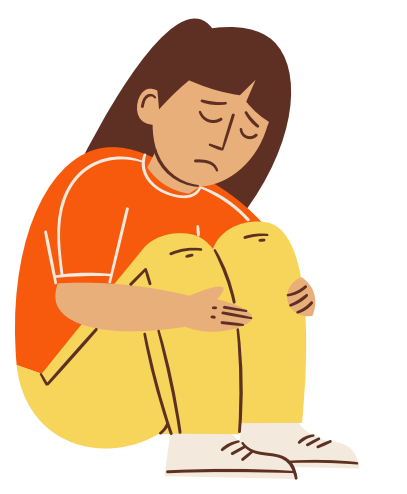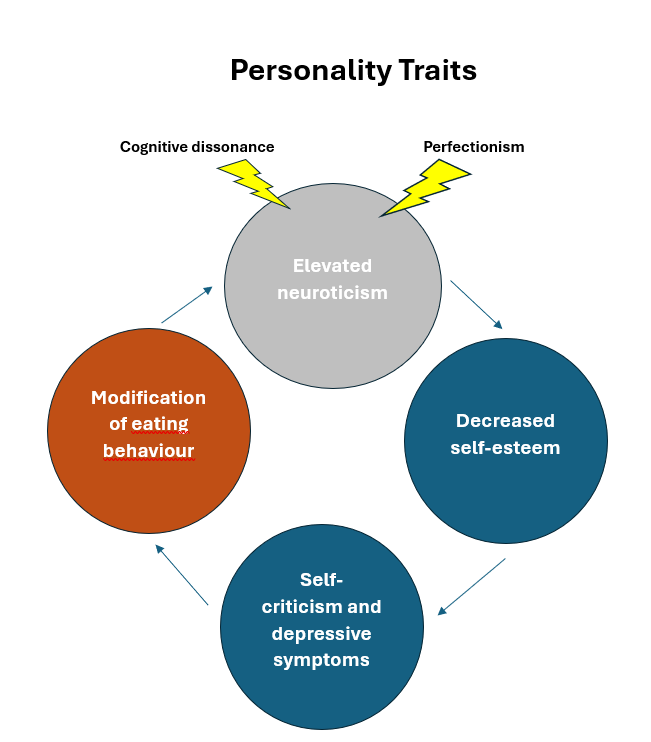Link between emotions, eating disorders and obesity
Source : Nutriactis/Rouen-Normandie hospital
Scientific studies have found more personality traits associated with negative emotion in patients with EDs or obesity compared to the general population. Indeed, patients with TCA, and in particular bulimia, frequently have a high level of neuroticism.

- However, a strong neuroticism can induce a decrease in self-esteem that leads to self-critical behaviors and depressive symptoms that can generate bodily concerns and changes in eating behavior. Indeed, one study showed a negative association between self-esteem and compensatory behaviours, dietary restriction or binge eating. Thus, low self-esteem could be a predictor of FAS or obesity.

- Beyond, a high level of neuroticism, patients with EDs or obesity usually have difficulty controlling their emotions and a deficit of emotional abilities. The mismanagement of emotions can be influenced by various mechanisms such as anxiety, cognitive dissonance, perfectionism or alexithymia and promote the appearance of EDs or its maintenance (cf. personality traits sheet).
It is therefore essential to assess the ability to manage the emotions of patients suffering from EDs or obesity in order to offer them the most appropriate management.
- Neuroticism: high tendency to feel negative emotions and therefore anxiety
- Self-esteem: psychological concept; overall positive or negative judgment that a person has of himself
- Alexithymia: inability to express emotions through words
